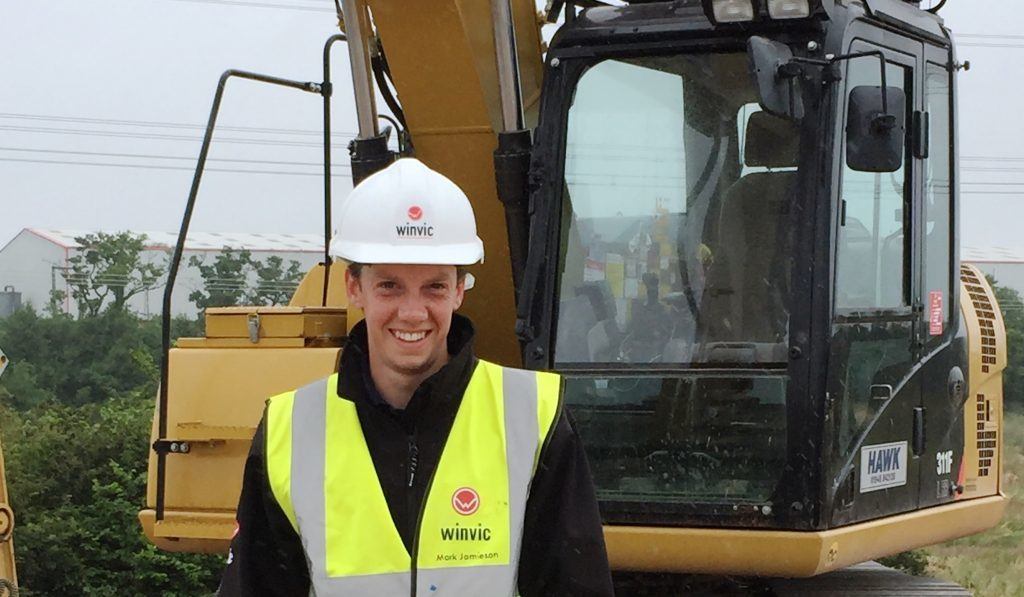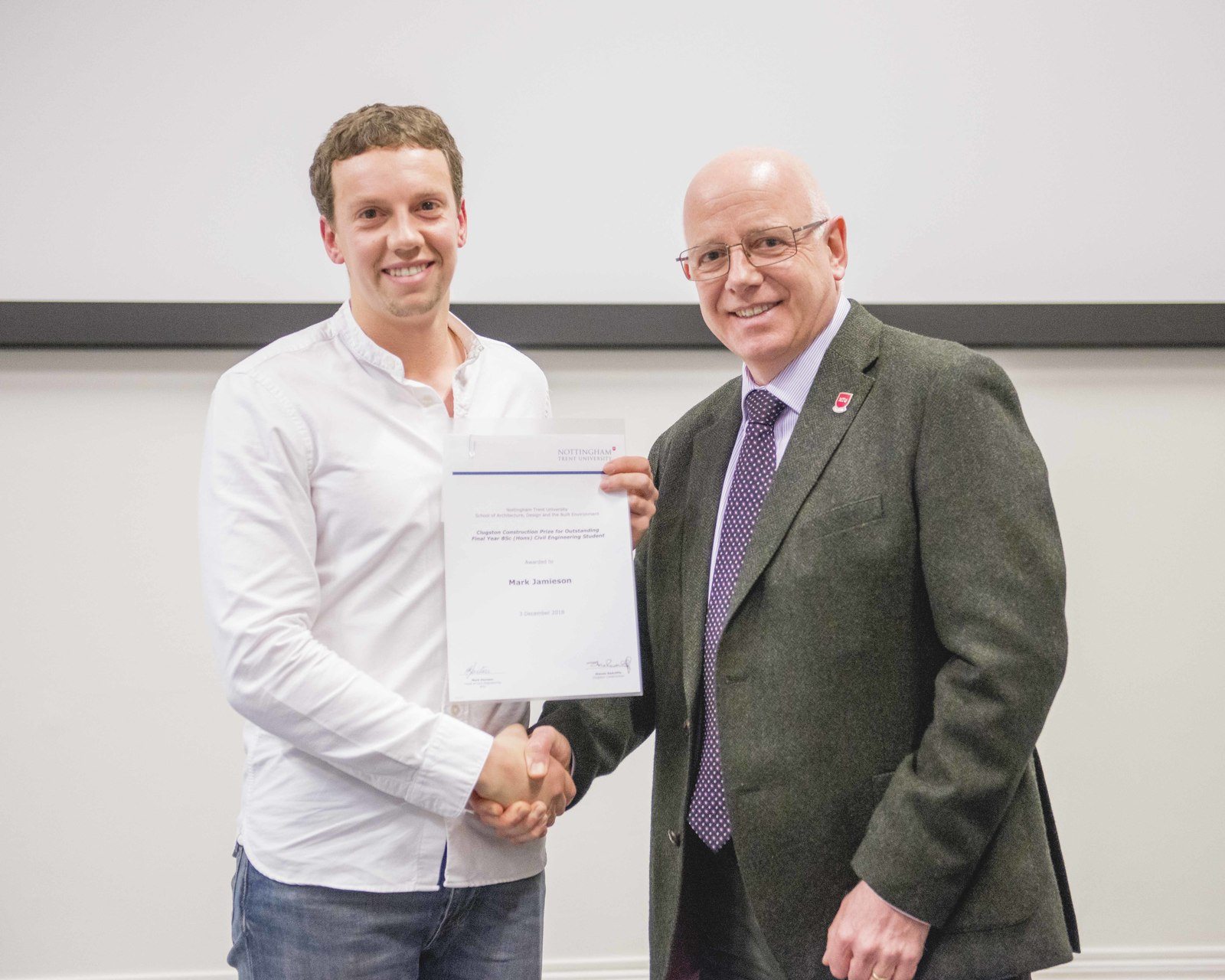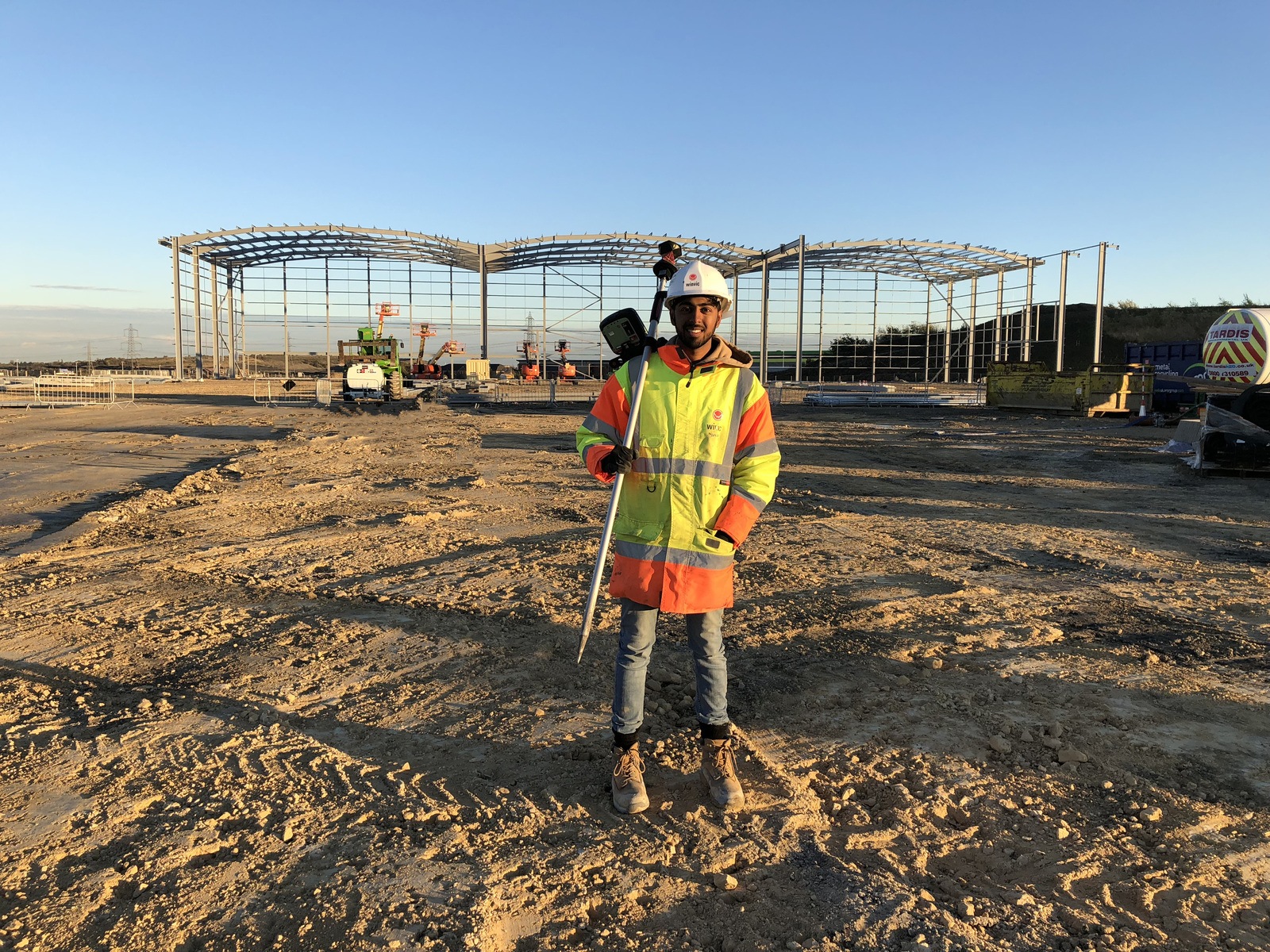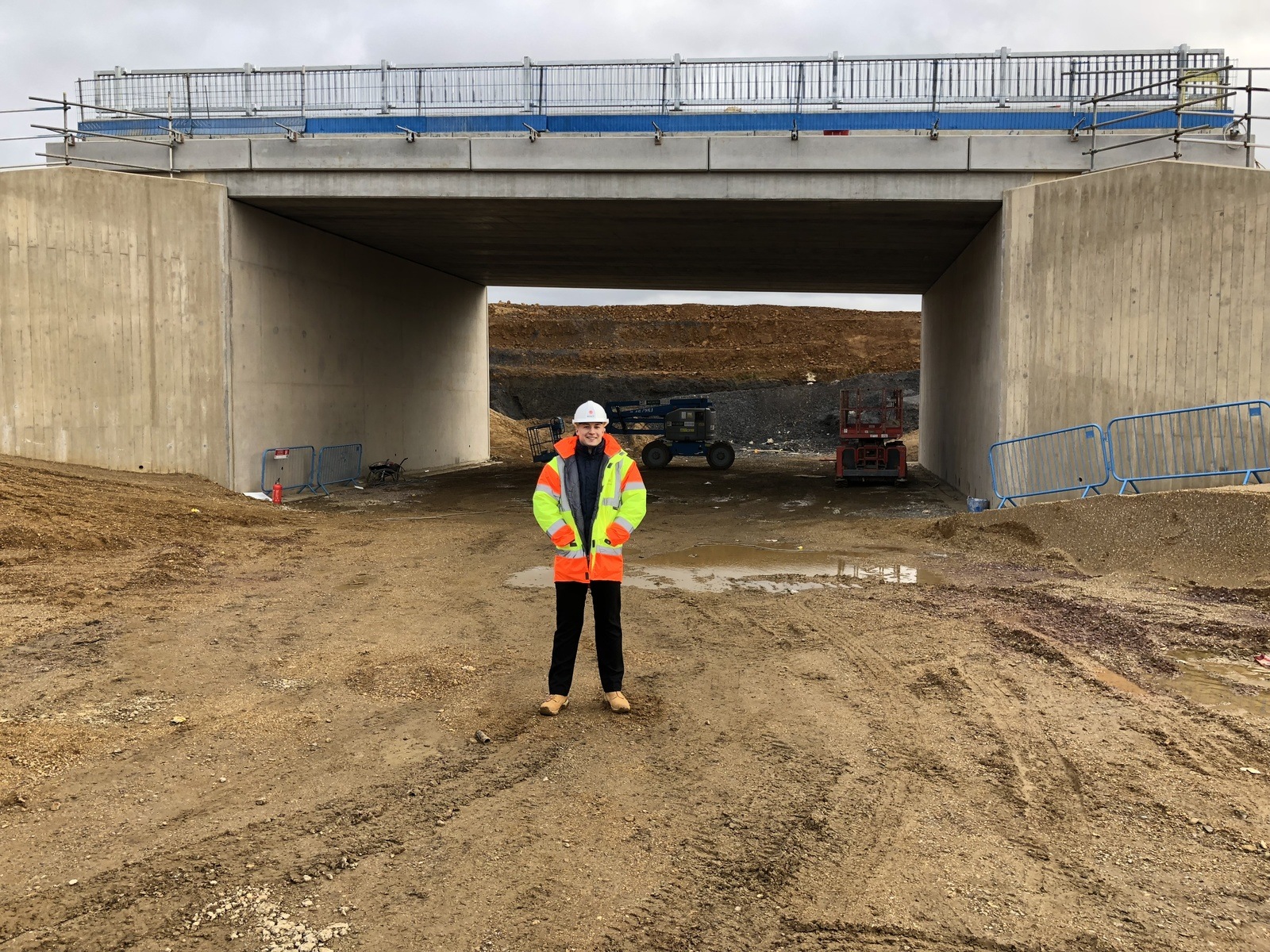A CRUCIAL building block in Winvic’s expansion as a business in recent years has undoubtedly been the development of its highly-skilled workforce.
That commitment to the growth of a team of talented individuals has recently been enhanced by an initiative presenting university students with the opportunity to gain real work experience in a year-long placement with the company.
Following a successful recruitment careers day, Winvic linked up with Nottingham Trent University to provide three Work Placement Traineeships.
“I’ve learnt a huge amount in a short space of time by shadowing previous engineers on site and am able to see the link between academic studies and their practical use on site.”
Mark Jamieson, Trainee Site Engineer
As a result, Mark Jamieson, Adam McKenna and Hamza Asif were offered the chance to take a ‘year out’ from their studies to gain valuable experience.
Having finished their second year at NTU, they have now joined the Winvic team for a 12-month period to work on different sites, while also getting the chance to see how other departments run at Head Office and attending training specific courses.
Adam McKenna commented: “The first few weeks with Winvic have been fantastic! I have already learnt a lot in such a short space of time.
“I hope to improve my knowledge and understanding of the construction process and see how different parts of the company work.”
Mark Jamieson, a Trainee Site Engineer, added: “I’ve learnt a huge amount in a short space of time by shadowing previous engineers on site and am able to see the link between academic studies and their practical use on site.”
As one of the world’s most sustainable universities, NTU consider that work placements are key to enhancing employability in the global market.
They are therefore an integral part of many courses and are often viewed by employers as an extended interview for graduate recruitment.
In addition to the three NTU placements, Winvic is currently also supporting the personal development of seven other talented people.
Studying a mixture of qualifications from university degrees to Higher National Diplomas, students work primarily on site, allowing them to put the skills they learn into practice alongside a personalised training programme.


 Share
Share
 Repost
Repost
 LinkedIn
LinkedIn
 Email
Email






